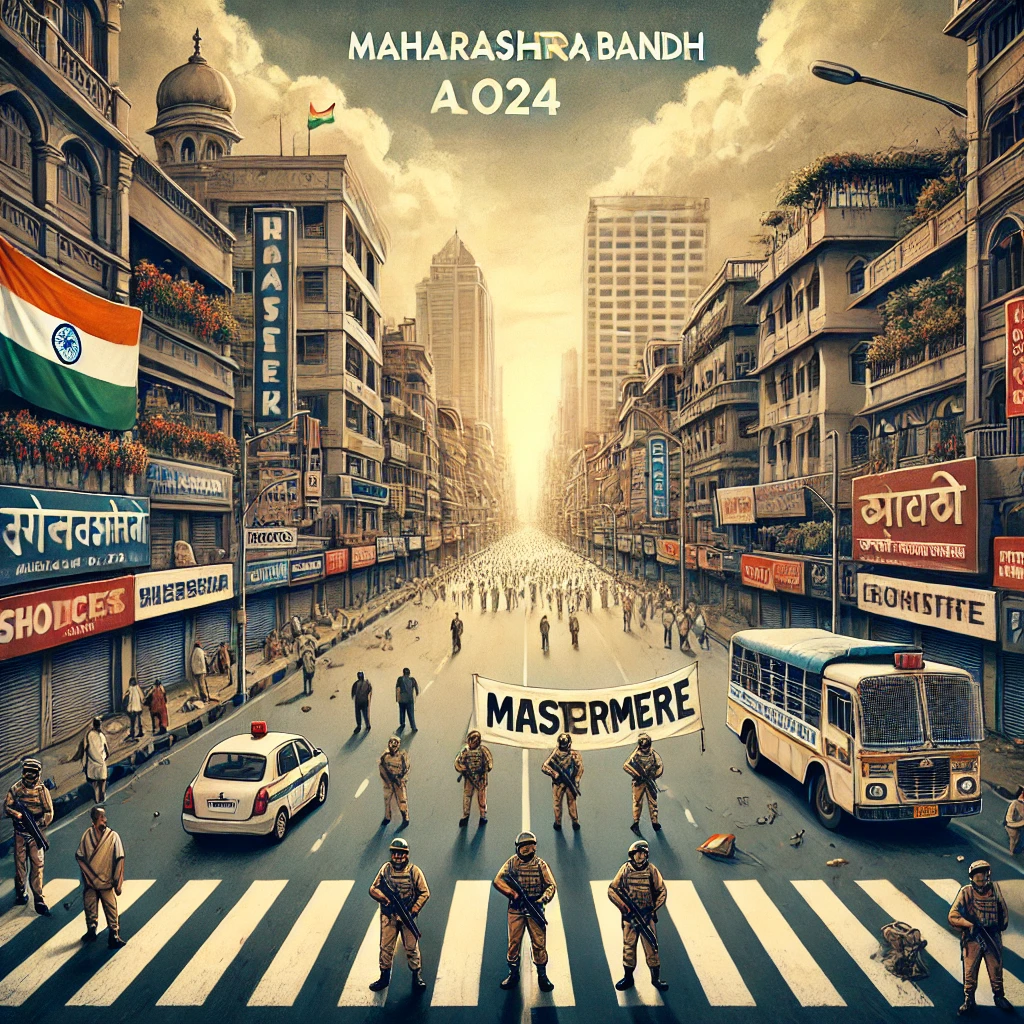Maharashtra Bandh in 24 August 2024: Understanding the Reasons and Impact
In August 2024, Maharashtra witnessed a state-wide bandh (shutdown) that disrupted daily life across the state. The bandh, called by various political and social organizations, aimed to draw attention to several pressing issues, ranging from demands for reservations to grievances over government policies. This article will explore the reasons behind the bandh, its impact on the state, and the responses from the government and the public.
Reasons for the Maharashtra Bandh
- Reservation Demands: One of the primary drivers behind the bandh was the ongoing demand for reservations by several communities in Maharashtra, most notably the Maratha and Dhangar communities. These groups have been demanding quotas in education and government jobs, arguing that they have been historically marginalized and need affirmative action to ensure equal opportunities. The Maratha reservation issue has been a contentious topic for years, with protests and agitations recurring periodically.
- Farmer Grievances: Another significant factor behind the bandh was the discontent among farmers over various agricultural policies. Issues such as minimum support prices (MSP), drought relief, and access to better credit facilities have been at the forefront of farmer protests. Maharashtra, being one of the most agriculturally diverse states in India, has seen numerous protests in recent years as farmers demand better conditions and support from the government.
- Unemployment and Economic Concerns: The bandh also highlighted concerns over rising unemployment and economic stagnation in the state. Young people, particularly from rural and semi-urban areas, have been increasingly vocal about the lack of job opportunities. With the state’s economy facing challenges due to global and national economic trends, job creation has become a crucial issue for the government to address.
- Political Factors: Political parties in Maharashtra, especially those in opposition to the ruling government, have also played a role in organizing and supporting the bandh. With upcoming elections on the horizon, parties are leveraging these social and economic issues to mobilize support and challenge the incumbent government. The bandh provided a platform for political leaders to showcase their commitment to the causes of the people.
Impact of the Bandh on Maharashtra
- Transportation and Daily Life: The bandh caused significant disruptions to daily life in Maharashtra. Public transportation, including buses, trains, and auto-rickshaws, was heavily affected as many drivers and operators supported the shutdown. Commuters in major cities like Mumbai, Pune, and Nagpur faced difficulties in reaching their destinations, with several services being halted or running on reduced schedules.
- Businesses and Markets: Many businesses, shops, and markets across the state remained closed during the bandh. Small and medium-sized enterprises, in particular, were affected as employees were unable to reach their workplaces. The closure of markets impacted daily trade, causing losses to businesses and inconvenience to consumers.
- Educational Institutions: Schools and colleges were also impacted by the bandh. Many institutions declared a holiday or shifted to online modes of teaching to avoid disruptions. Students preparing for exams faced challenges as scheduled classes and coaching sessions were canceled or postponed.
- Healthcare Services: Although essential services such as hospitals and pharmacies were exempt from the bandh, access to healthcare was still hampered in some areas due to transportation difficulties. Non-emergency medical appointments were rescheduled, and some smaller clinics remained closed in solidarity with the protests.
Government Response
The Maharashtra government responded to the bandh by urging calm and emphasizing that it was working to address the issues raised by the protestors. Government officials called for peaceful demonstrations and ensured that law enforcement agencies were deployed to maintain order across the state. In some areas, the police had to intervene to disperse crowds that were obstructing roads or engaging in acts of vandalism.
Chief Minister Eknath Shinde reiterated the government’s commitment to resolving the demands of various communities and assured the public that efforts were being made to address economic and social grievances. Dialogues between the government and community leaders were scheduled to find solutions, particularly concerning reservation demands and farmers’ issues.
Public Opinion
Public opinion on the bandh was divided. While many people supported the cause and believed the bandh was necessary to highlight the challenges faced by various communities, others felt that such shutdowns only added to the hardships of ordinary citizens. The inconvenience caused by the bandh, particularly in urban areas, led to frustration among commuters, business owners, and daily wage workers who faced financial losses due to the disruptions
